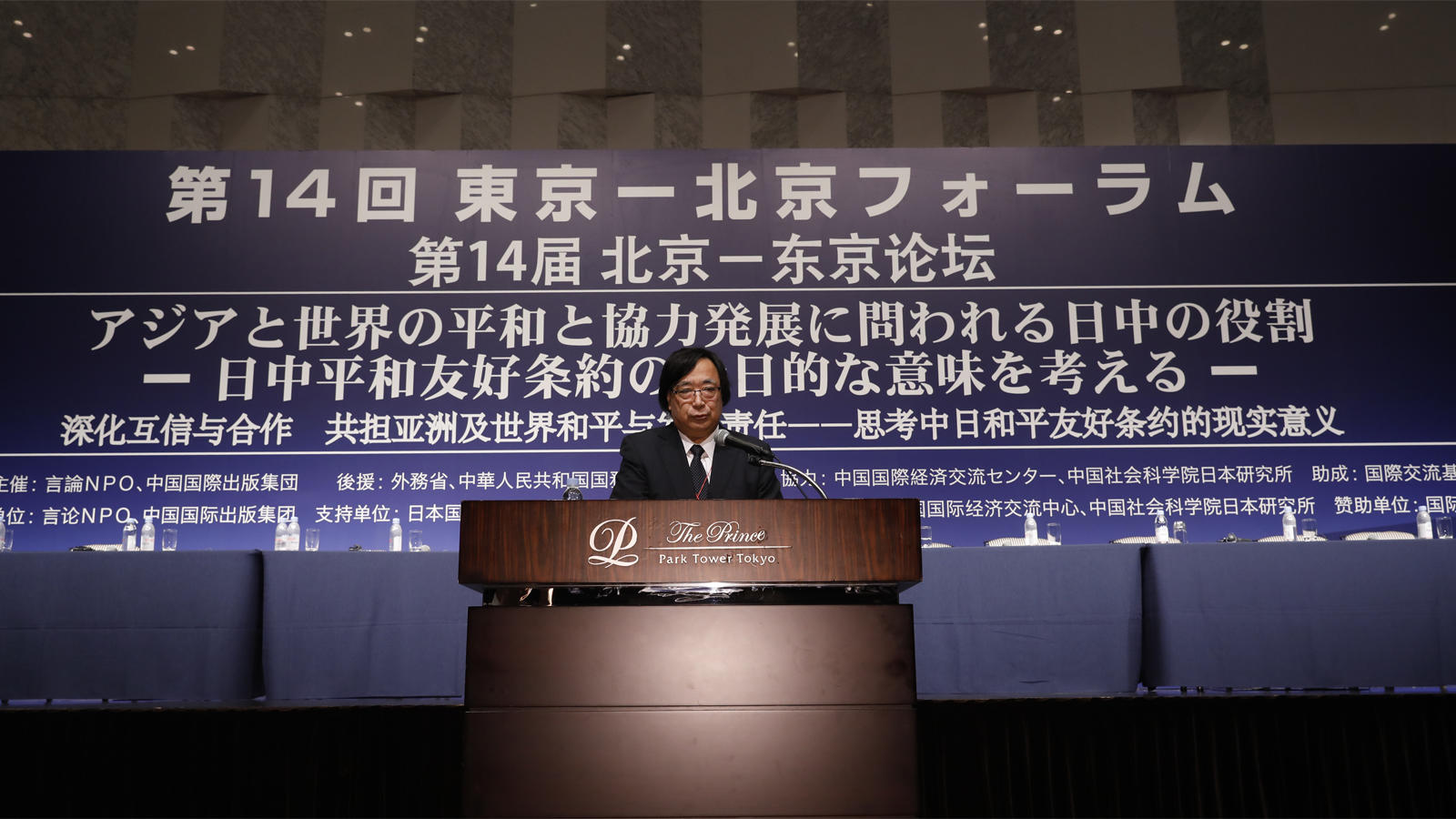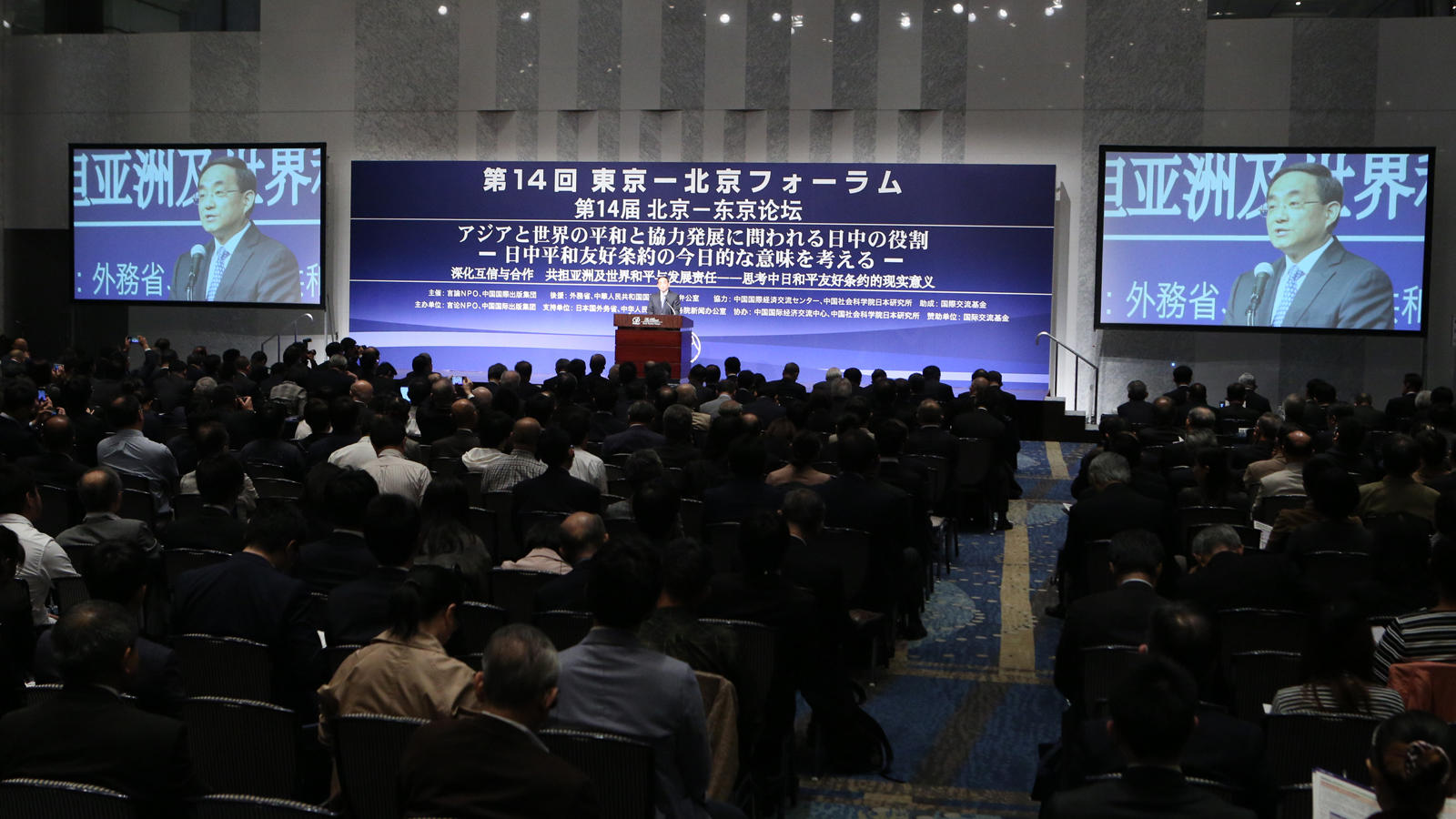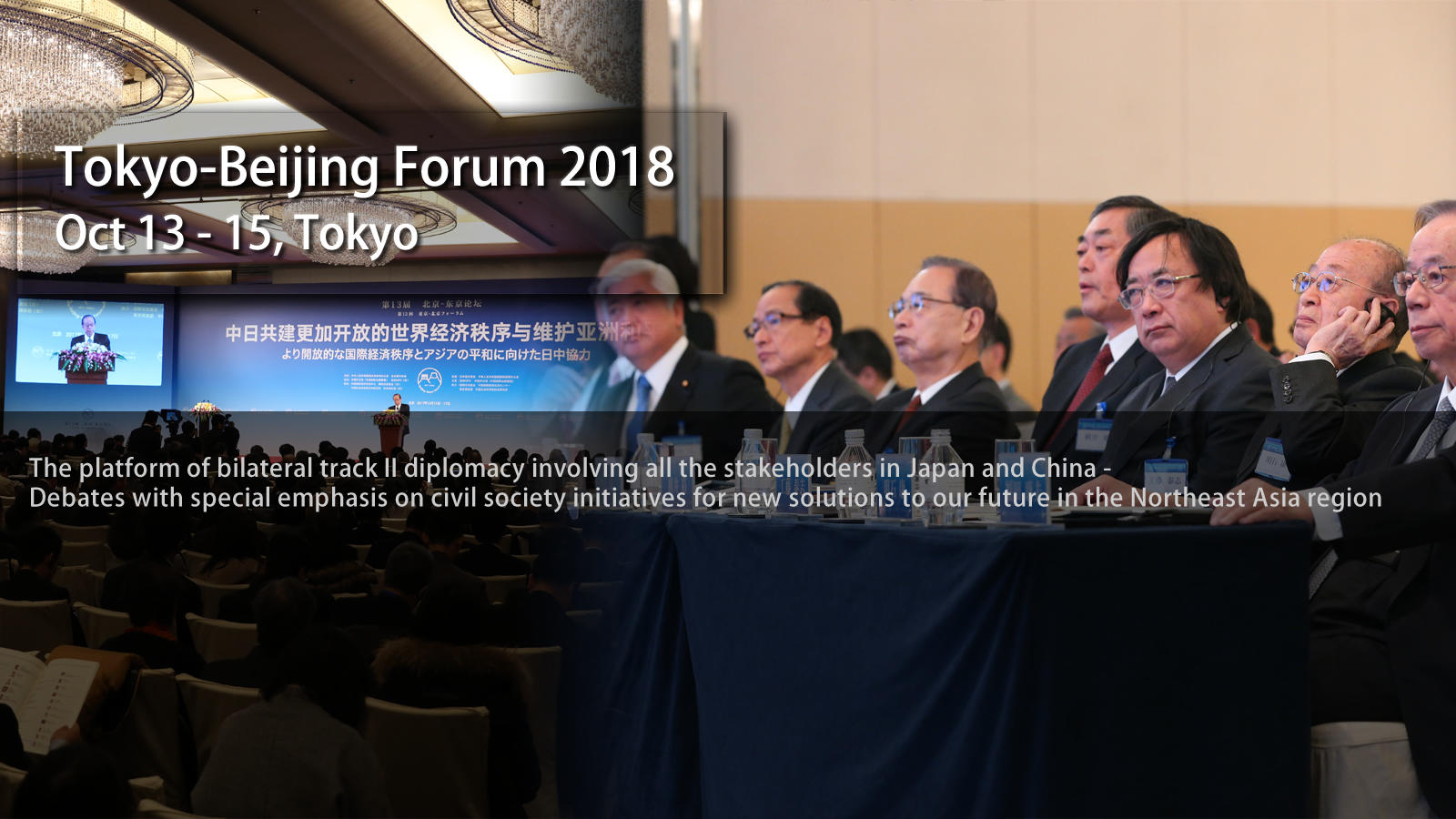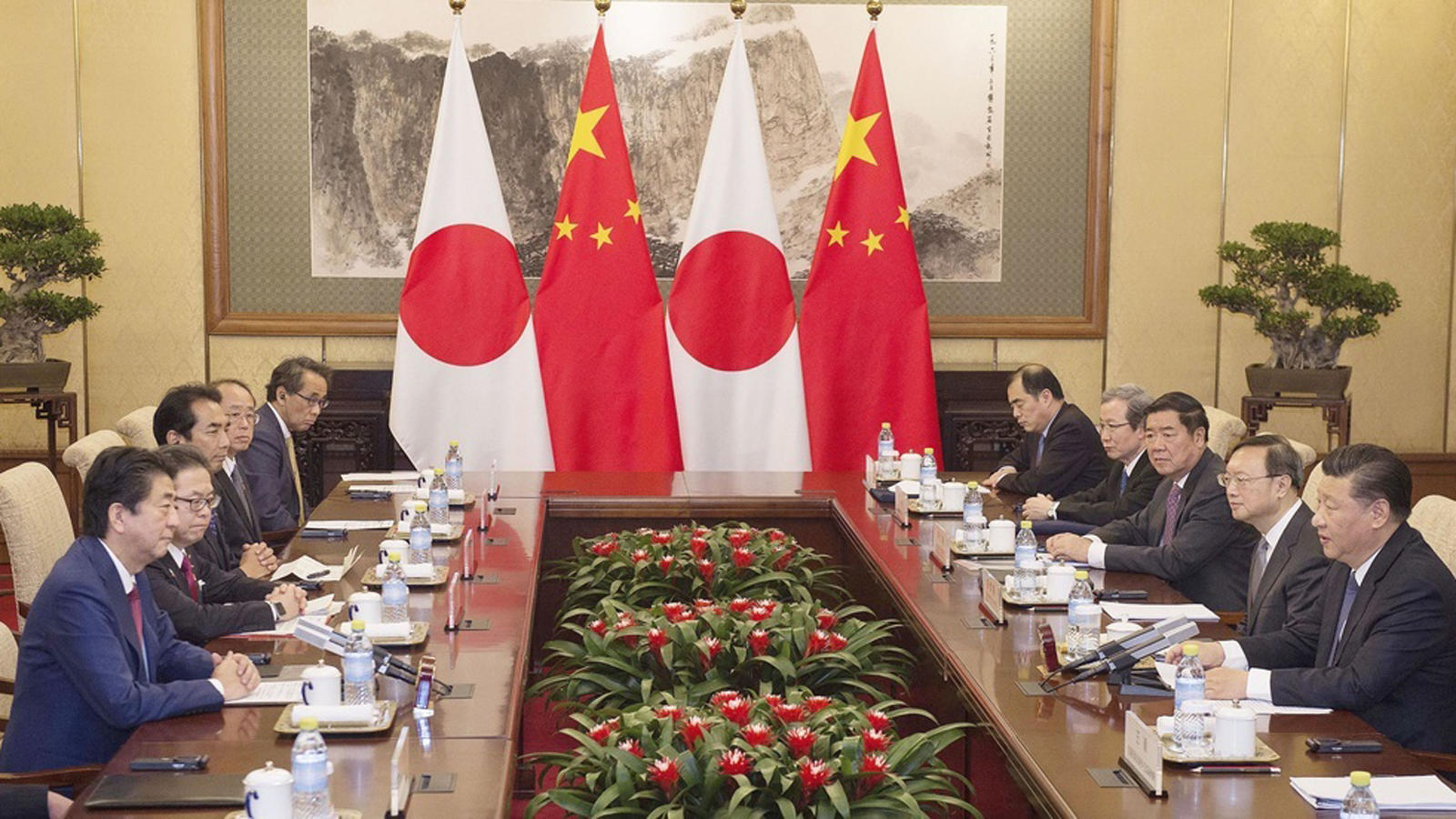This is the full text of the joint statement, named the "Tokyo Consensus," adopted at the end of the 14th Tokyo-Beijing Forum on Oct. 15, 2018.
Tokyo Consensus
The 14th meeting of the Tokyo-Beijing Forum took place in Tokyo from Oct. 14 to Oct. 15, 2018, at which about 100 influential intellectuals, politicians, business executives and journalists who represent Japan and China discussed the challenges and difficulties both countries face in such fields as politics, economics and national security.
We have participated in the Tokyo session with a special resolve partly because this year marks the 40th anniversary of the signing of the Japan-China Treaty of Peace and Friendship. We also have other reasons. That is, the international economic and trading order, based on fair, free and open rules, is destabilizing, while in Asia, we are witnessing new moves toward peace and the denuclearization of the Korean Peninsula.
We highly evaluate the four political documents Japan and China have adopted, including the Japan-China Treaty of Peace and Friendship of 1978, because both countries commonly share a solid recognition that they should solemnly assume responsibility for the peace, stability and development of Asia, and the world. We believe that now is the time for both countries to fulfill their responsibilities for the historic challenges.
Five years ago, the annual Tokyo-Beijing Forum adopted the joint statement called the "No-War Pledge," and delivered our shared resolve to the rest of the world. The joint statement of this year's forum, named the "Tokyo Consensus," is its successor, but it is of a more proactive nature.
The goals of peace and cooperative development cannot be achieved only by efforts to control conflicts, and to squarely face economic hardships. We should consolidate our resolve to build peace and order in the Asian region, to reinforce our cooperation in third-country markets and in the area of innovation, and to collaborate with each other to foster the growth of the world economy, based on international rules and multilateralism.
We understand that "private-sector diplomacy" has its special role in creating a foundation for new cooperation by overcoming the difficulties in governmental relations. It is exemplified by the fact that this annual forum has been held continuously for the past 14 years without disruption, even when both governments faced severe difficulties in their relations.
Out of such a strong feeling, we have engaged in serious discussions for the past two days, and have come to the agreement below:
2
The situation surrounding world free trade has been worsening, with unilateralism becoming a threat to the global economy. From the standpoint of opposing trade protectionism, we are at a critical phase where Japan and China should collaborate for the promotion of a more open and free-trade system, based on international rules and international cooperation based on multilateralism.
To this end, both countries should tackle the reform of the World Trade Organization (WTO) to pave the way for new and fair rules, including those on electronic commerce, as well as the structural reforms of respective economies.
In addition, Japan and China should facilitate interactions of trade and investment by materializing economic partnerships in East Asia, both bilateral and multilateral.
3
What we should learn today from the Japan-China Treaty of Peace and Friendship, signed 40 years ago, is the firm resolve to stick to the "No-War Pledge" and the posture of strongly rejecting "hegemonism." That is, we should not resort to military means for the resolution of any conflicts and challenges, and refrain from taking any actions that might pave the way to war. By inheriting the strong resolve of our predecessors, we are determined that they should prevail in the future as the guiding principles for conduct in East Asia.
To this end, it is necessary for Japan and China to reconfirm that their conduct would be constrained by the principles of "no-war" and "anti-hegemonism."
With this in mind, we would like to launch the work initially at private-sector levels to make them the common principles for the entire East Asian region.
4
In East Asia, an effective crisis management mechanism is not functioning sufficiently and there exists the risk of an accidental confrontation developing into an unexpected military conflict.
On account of the efforts of the top leaders of both governments, Japan and China have realized part of such a scheme. However, we must advance it to a more sophisticated level and promptly create a comprehensive crisis management mechanism of a much larger scale, featuring regular consultations on crisis management and prevention of accidents involving the maritime law-enforcement authorities of both countries.
5
These various efforts toward peace and cooperation/development in East Asia should be supported not only by intellectuals but by a broad range of people in both countries. In order for Japan and China to create the future of Asia together, it is imperative to see the prevalence of debates between the people of both countries in a calm manner and from a longer-term perspective. We believe it is such public debate that would create the favorable environment for governmental diplomacy.
We have reconfirmed the historic mission of our private-sector dialogue that began 14 years ago and has continued ever since, and are determined to keep fulfilling our mission in a constructive manner for the purpose of building the foundation for new relations of cooperation between Japan and China.
The Genron NPO
The China International Publishing Group (CIPG)




Post a comment